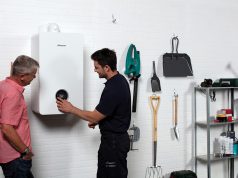
Understanding the lifespan of a generator is crucial for both homeowners and businesses relying on backup power sources.
Generators are significant investments, and knowing how long they are expected to last can help with budgeting, maintenance planning, and overall preparedness. Let’s delve into the factors influencing the life expectancy of generators.
Design and Quality
The design and quality of a generator play a significant role in determining its lifespan. Generators manufactured by reputable companies using high-quality materials and advanced engineering techniques tend to have longer life expectancies.
These generators are built to withstand the rigours of continuous operation and are less prone to premature failure due to wear and tear. Investing in a well-designed and robust generator can result in many years of reliable service.
Type of Fuel
The type of fuel used by a generator can also impact its lifespan. Diesel generators, for example, are known for their durability and longevity compared to petrol or gas-powered generators.
Diesel engines are designed to operate under heavy loads for extended periods, making them suitable for standby and prime power applications. Proper fuel management, including regular fuel testing and quality control measures, is essential to ensure optimal performance and prolong the lifespan of the generator.
Maintenance Practices
Regular maintenance is critical for extending the life expectancy of a generator. Neglecting routine servicing tasks such as oil changes, filter replacements, coolant checks, and electrical system inspections can lead to accelerated wear and tear and potential breakdowns.
Following the manufacturer’s recommended maintenance schedule and addressing any issues promptly can help to prevent repairs as much as they can, but in most cases, generator repair is a common service that needs to be taken into consideration to ensure the generator operates efficiently throughout its lifespan.
Operating Conditions
The operating conditions in which a generator is used can significantly impact its longevity. Generators subjected to harsh environments, such as extreme temperatures, humidity, dust, and corrosive elements, may experience accelerated deterioration of components and require more frequent maintenance.
Additionally, generators operating in high-altitude locations may experience reduced performance due to decreased air density, requiring adjustments to compensate for the altitude effects.
Frequency of Use
The frequency of generator usage is another factor influencing its lifespan. Standby generators that are rarely used may experience issues such as fuel degradation, moisture buildup, and corrosion due to a lack of regular operation.
Conversely, generators used as primary power sources or in commercial and industrial settings may wear out faster due to continuous operation under heavy loads. Properly sizing the generator to match the anticipated workload and implementing a maintenance plan tailored to usage frequency can help maximise its lifespan.
Load Capacity
The load capacity of a generator refers to its ability to handle electrical loads efficiently. Running a generator at or near its maximum capacity for prolonged periods can put stress on the engine and other components, potentially shortening its lifespan.
It’s essential to properly size the generator based on the expected loads and ensure it operates within its rated capacity to avoid overloading and premature wear. Distributing loads evenly across multiple generators or implementing load-shedding strategies can help optimise performance and extend the lifespan of the equipment.
Technological Advancements
Advancements in generator technology and engineering practices can also influence the life expectancy of modern generators. Innovations such as electronic controls, improved fuel efficiency, enhanced cooling systems, and predictive maintenance capabilities have contributed to longer lifespans and greater reliability.
Investing in newer generator models equipped with these features can provide peace of mind and ensure a continuous power supply for years to come.
Our Final Thoughts
While the lifespan of a generator can vary depending on several factors, including design, fuel type, maintenance practices, operating conditions, frequency of use, load capacity, and technological advancements, proper care and attention can significantly extend its longevity.
By investing in a quality generator, following recommended maintenance procedures, operating the equipment under suitable conditions, and leveraging technological innovations, homeowners and businesses can ensure reliable backup power when it’s needed most.













